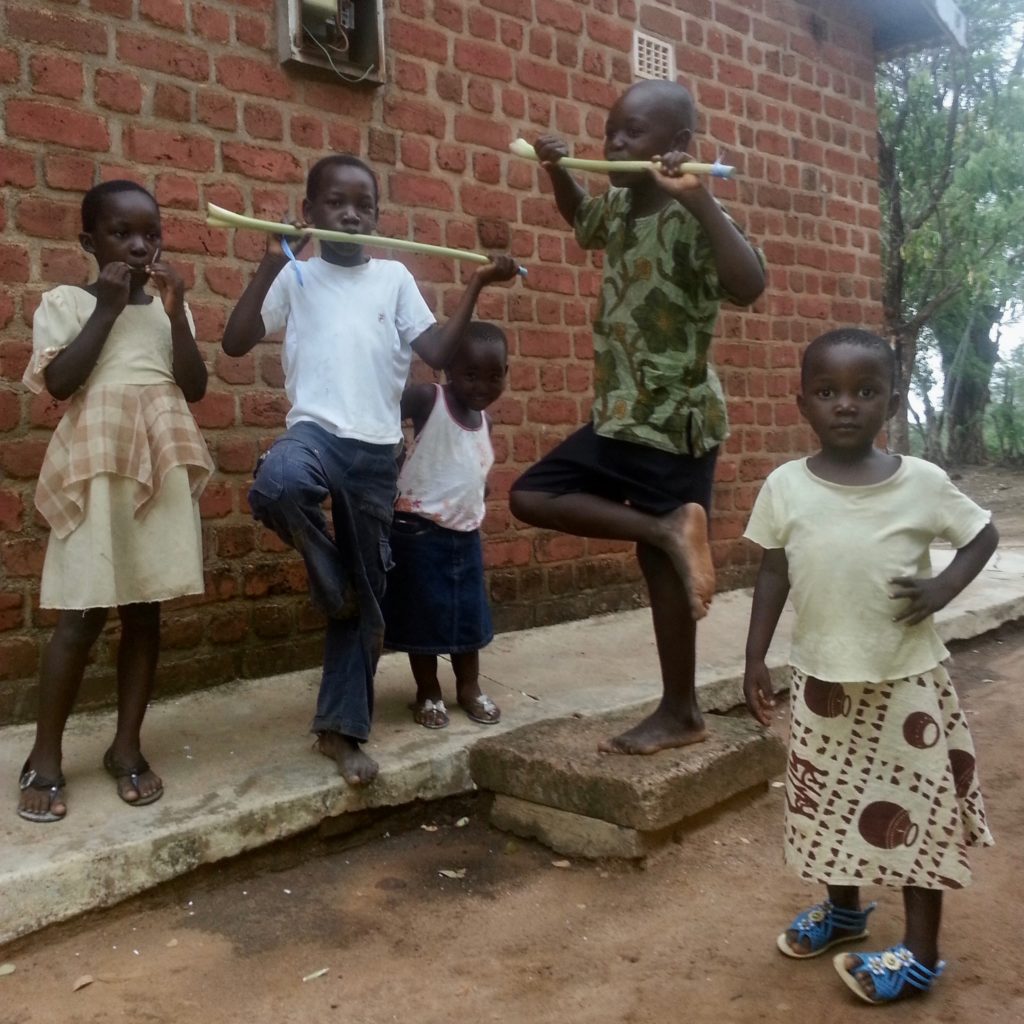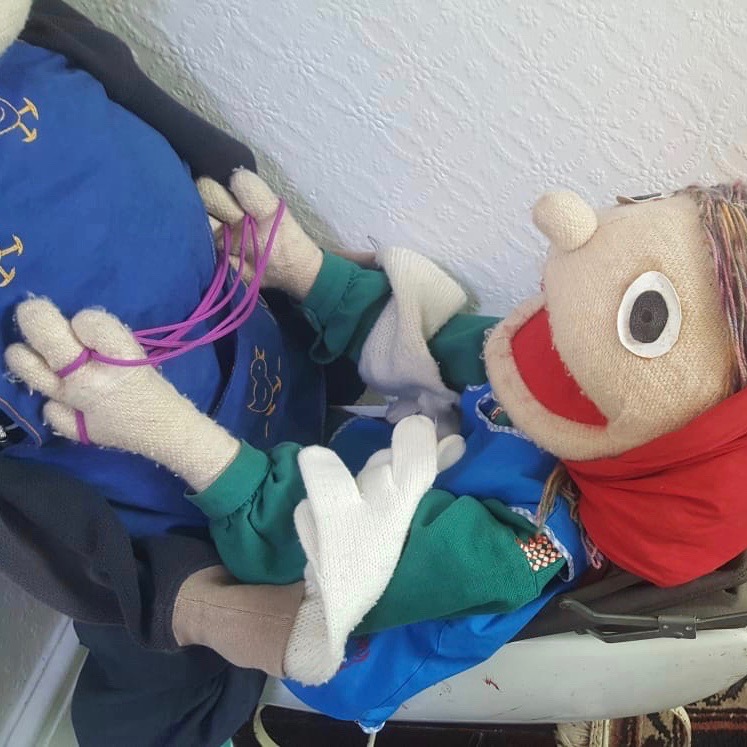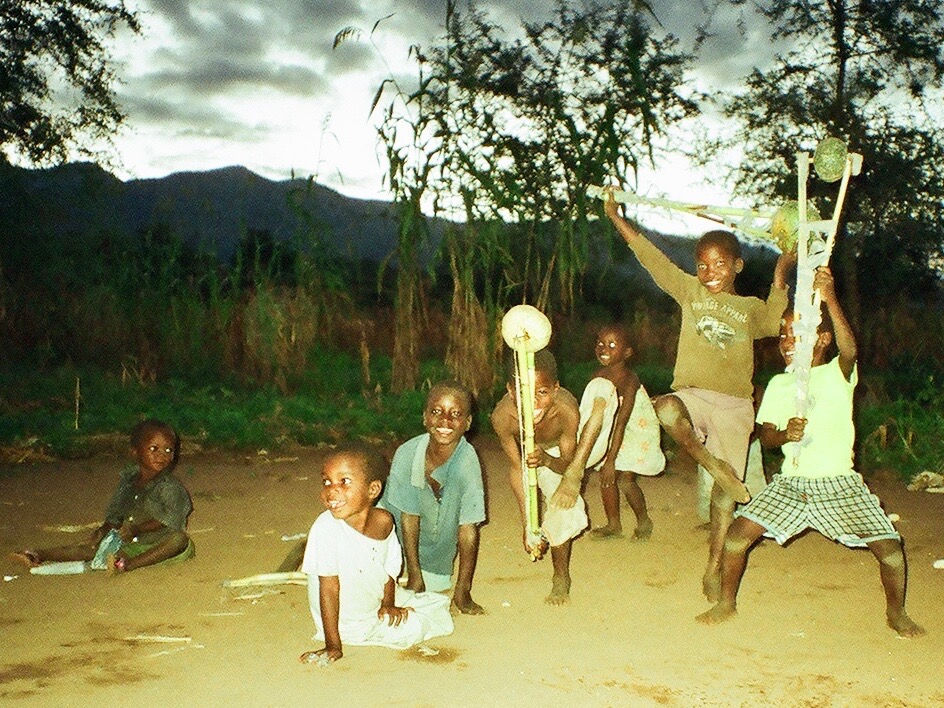Since 2005 I've been visiting Mua Deaf School in the Central Region of Malawi. I spend time with the deaf children sharing the joy of origami and juggling, whilst the deaf children reciprocate by teaching me Malawi Sign Language vocabulary and sharing with me their culture. On each visit I have stayed in the village with members of the family of Mr Aristio Gondoloni, who was headteacher during my first two visits to the Deaf School. During these visits I've always enjoyed finding what games the village children are busy playing when I return to the village home after a morning or an afternoon out.
Victoria Gondoloni (youngest daughter of Mr Gondoloni, aunt of Leona, Blessings and Vanessa, and since October 2017 herself Teacher of the Deaf at Mua Deaf School) was living at that time in the family home some walk from the Deaf School. The house was without electricity and as night fell very quickly at around 6 every evening it was usual to have lain down by 7.30pm. A single gas lamp and a supply of candles provided light when needed after dark. It was to me a very charming house, situated high up in the village, in a little clearing surrounded by high maize. A large black cockerel lay motionless – as if dead – outside my bedroom throughout the day. Three times during the night – at around 1am, 3am and 5am, I would be woken by a tremendous flapping of wings followed by a cacophony of sound. Finding my way to my bed one night in the dark, I grabbed at what I thought was my little black bag next to my bed, and found instead, in my hand, a squawking black chick.
The floor was of bare earth, which I once, to my embarrassment but to the great joy of some resident frogs, turned into mud on attempting to transfer a bucket of water from my head to the floor. With Victoria I’d been to the source at the bottom of the mountain, determined to carry water on my head back to the home. We passed by the home of Victoria’s gogo (grandmother) on our way to the mountain, and on finding out my plan, Gogo, who as usual was sitting in front of her little home imparting wisdom to those who passed by, said 'pangono pangono'- meaning 'little by little'. Gogo elaborated by explaining to me (in Chichewa, which Victoria translated) that it takes time and practice for the neck to develop the strength to carry water on the head, and that I should do as the children do, starting with small pots and working my way towards larger pots. On the way back from the source, carrying a smallish bucket half filled with water on my head, I found that my arm, holding onto the bucket, would quickly tire and I would regularly exchange arms – and I thought that I had gained an insight into why Malawian women have perfected the art of balancing the pot on their head without the aid of their arms. I admired Victoria skipping over the stream in her bare feet with a large full pot of water on her head – and accepted her assistance as I tried to cross the stream myself. On the way back to the home I attracted a lot of attention and laughter as villagers caught sight of the spectacle of a mzungu (white person) carrying water on her head. Back in the home, when I had thought I had achieved my ambition and was just about resting on my laurels, I fell at the last leg – trying to dismount the bucket from my head and keep it upright until it was on the floor. I had never hitherto in my life thought about how to keep a bucket vertical during transit from head to ground – but at once I realised that achieving this successfully is in itself high art. Victoria very politely set to work raking the mud so that the floor of their home would remain respectable after the mud had dried. I felt very embarrassed!
On 24th April 2010 I'd spent the afternoon with Victoria at the school, folding paper and juggling with the deaf children. As was usual, it was late afternoon by the time we started the walk back home. When we arrived back at the house, I was treated to the sight of little Precious and two of his friends playing outside the house in the dusk (fig. 2). Each had a de-cored pumpkin, I imagine entirely hollowed out, through which a long maize stalk, bent into three, served as axle and handle for pumpkin 'wheels'. The three boys ran towards each other, with pumpkins rolling along in front of them on the end of their handles, 'bumping' the pumpkins together, rather like bumper cars bumping into each other. I couldn’t work out whether there were any rules to this game, or indeed what those rules might have been. I watched the boys for a little while, running towards and away from each other, until the boys and their game disappeared into the high maize which surrounded the house.
On the afternoon of 21st December 2013 I returned to Sophie and Davie's home, after a walk to the local market, to find Vanessa and friends blowing notes out of self-made flutes fashioned from the stalk of the paw paw tree (fig. 3). It has a hollow and you just cut another square hollow at the centre, at the end of the hollow you cover with plaster paper and you blow at the hollow in the centre and produce the beautiful sound.
On the afternoon of 7th January 2016, when I arrived at the home of Sophie and Davie Chaone, I found the children sitting on the ground outside the house with a ball of wool, all busy making string figures. I had lunch and then went straight to the Deaf School. That evening, after dinner, I asked the children to show me their string figures, first by candle light and then, when power returned, by lamp light...


